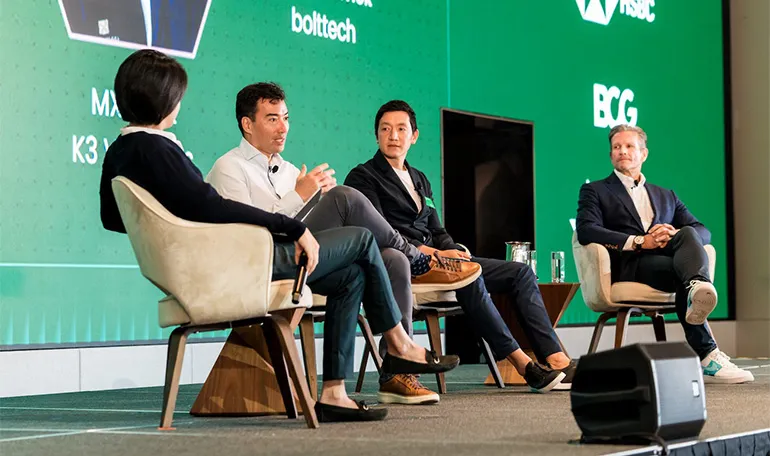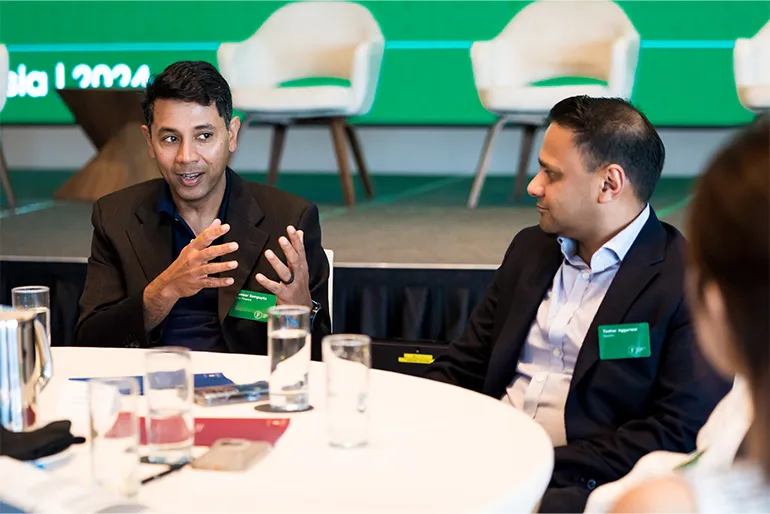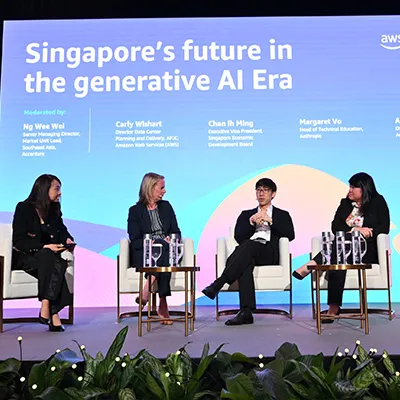This article on FF Asia was originally published by Founders Forum Group.
The Southeast Asia (SEA) tech ecosystem reached a combined valuation of more than US$395 billion (S$538.12 billion) in 2023, with new innovations, investment opportunities, and global businesses thriving in the region and across the Asia-Pacific.
Our third annual edition of Founders’ Forum Asia (FF Asia) in Singapore brought together inspirational founders, investors, and corporate and government leaders from over 17 countries and 40+ industries to discuss the future of tech innovation in Asia, covering artificial intelligence (AI), talent, investment, and more.
Opening the day’s events, Heng Swee Keat (Deputy Prime Minister of Singapore) discussed the rapid growth of Singapore’s tech startup ecosystem, before Henry Ward (Carta), Meng Xiong Kuok (K3 Ventures), and Rob Schimek (bolttech) sat down with Pinn Lawjindakul (Lightspeed) to talk about the journey from startup to scaleup to unicorn!













